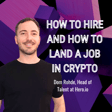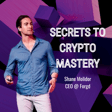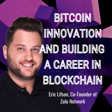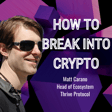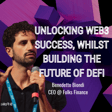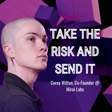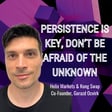
Maxim Legg: How Pangea Is Powering the Next Wave of Web3 Builders
Behind The Blockchain – Maxim Legg (Pangea) Web3 infrastructure | Decentralization | Crypto | Blockchain | DeFi | Founder Story
Ever wondered how decentralized infrastructure is really built? In this episode, Maxim Legg, founder & CEO of Pangea, reveals how his team is reshaping the internet from the ground up — building a faster, fairer, and more resilient world for developers, protocols, and users.
We cover everything from Pangea’s mission to decentralize Web3 infrastructure, to what it takes to build a company from zero, hire great people, and survive the wild world of crypto startups. If you’re interested in Web3, AI, blockchain development, or founder journeys, this episode is packed with insight.
Hit subscribe to stay updated with weekly conversations with the builders and investors shaping the decentralized future.




